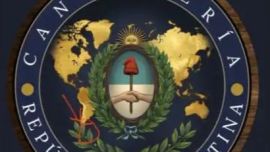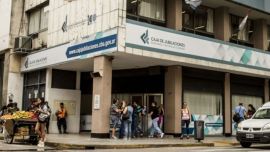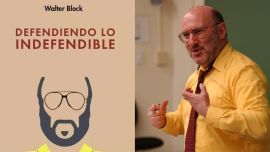THE WEEK IN CORONAVIRUS
There was a total of 122,439 deaths and 8,555,379 confirmed cases at press time yesterday as against 120,657 deaths and 8,271,636 confirmed cases the previous Friday with daily death tolls now above 300 most days. Despite the worsening numbers and close to 3,000 people in intensive therapy in midweek, there were almost no new initiatives in this summer holiday week with seven Argentines out of every eight vaccinated at least once while almost 30 percent have now received a third booster dose with child vaccination awaiting the return of the school year.
ALBERTO ON TOUR
President Alberto Fernández left on Tuesday night on a week-long, three-nation tour, meeting with Russian President Vladimir Putin on Thursday and attending the inauguration of the Winter Olympics yesterday before flying home via Barbados next week with Vice-President Cristina Fernández de Kirchner left in charge for the eight days of his absence. Both Russia and China are controversial destinations, given the Ukrainian crisis and the Western boycott of the Winter Olympics. A delegation streamlined by China’s drastic anti-pandemic restrictions included Economy Minister Martín Guzmán (for Russia only) and Foreign Minister Santiago Cafiero, as well as Governors Axel Kicillof (Buenos Aires), Raúl Jalil (Catamarca) and Arabela Carreras (Río Negro). Thursday’s luncheon with Putin included a controversial remark that Argentina should depend less on the International Monetary Fund (IMF) and the United States in the midst of debt negotiations with the former, to whom Argentina owes US$44 billion. President Fernández also praised Russia for being the first country to supply Argentina with vaccines against Covid-19 “when the rest of the world did not help us.”
MÁXIMO MAKES WAVES
At the start of the week Máximo Kirchner resigned as Frente de Todos caucus chief in the Chamber of Deputies, arguing that it would be impossible for him to go rallying votes for an International Monetary Fund (IMF) agreement with which he himself disagreed. He was replaced the next day by deputy Germán Martínez, a protégé of former defence minister Agustín Rossi who hails from Rosario. Economy Minister Martín Guzmán defended the agreement, calling it “a reasonable alternative … what was feasible" while admitting: “Nobody in our political space can be happy about the IMF being in Argentina.” But Guzmán insisted that not agreeing would have been “a leap into the unknown.”
SUPREME COURT PROTESTS
Kirchnerite organisations marched on the Supreme Court from the Obelisk last Tuesday, accusing the tribunal of being "at the service of lawfare and impunity." March organisers included picket leader Luis D'Elía, judge Juan María Ramos Padilla and former vice-president Amado Boudou while government members attending included Housing Minister Jorge Ferraresi, deputy Justice Minister Juan Martín Mena and AFI intelligence trustee Cristina Caamaño. There was also some support from trade unions and human rights organisations. Juntos por el Cambio dismissed the march as "quite simply a coup-mongering attitude" and while it did not officially support the a counter-march last Thursday to "defend judicial independence," it was attended by several deputies (including libertarians). Meanwhile Jujuy social activist Milagro Sala accused the Supreme Court of converting the judicial branch into a political party while her province’s Radical Governor Gerardo Morales ran a “dictatorship,” also accusing President Alberto Fernández of taking his side instead of freeing her.
CUT COKE TRAGEDY
At least 23 people have died in north-western Greater Buenos Aires after consuming contaminated cocaine in the small hours of Wednesday with almost 100 other people hospitalised. The tainted drugs were traced to a dealer in the Tres de Febrero slum neighbourhood of Puerta 8, the epicentre of the tragedy, but there were also victims in the districts of Hurlingham (where the first four deaths were reported) and San Martín and even Rosario according to some reports with some of the toxic cocaine resold instead of being consumed. The dealer was arrested the next day. Investigators were trying to determine whether the contamination was the result of an error or being deliberately poisoned or laced with some toxic substance (perhaps because one drug-trafficking gang was trying to ruin a rival’s business). The same day Buenos Aires Province Security Minister Sergio Berni came out warning anybody who had bought drugs in the last 24 hours “to throw them away.” The incident served to fuel a long-standing crossfire between the national and provincial Security Ministries (which has continued despite Aníbal Fernández replacing Sabina Frederic last September) although Fernández ended up deleting an offensive tweet and apologising.
MARKET WATCH
The “blue” parallel dollar advanced from 212.50 pesos to 214 pesos in the course of the week after rising four pesos in the first half in the immediate wake of Máximo Kirchner’s exit from the Frente de Todos Congress helm in protest against the negotiations with the International Monetary Fund (IMF). The official exchange rate moved up to 110.75 pesos yesterday from 110.25 the previous Friday, as quoted by Banco Nación, or 183.41 pesos if the 65 percent surcharges for savers are added. The parallel but legal exchange rates of the CCL (contado con liquidación) and MEP (medio electrónico de pagos) continued to move down, the former to 219.14 pesos as against a range of 222-226 pesos the previous Friday but sharply down from a peak of 240 pesos while the latter closed at 212.23 pesos as against below 217 pesos the previous Friday. Country risk was down to 1,783 points yesterday as against 1,889 points at the close of last week but returned to an upward trend yesterday.
YPF PRICE RISE
At the start of the month YPF state oil company announced fuel price increases averaging nine percent as from last Wednesday, the first increase since last May. A litre of standard petrol thus goes up to around 90 pesos, premium to 104 pesos and diesel 100 pesos. YPF justified the increase by referring to the strong recovery of domestic demand in the second half of last year (reaching a historic peak last December) and surging world prices, attributing the recovery in part to company investments of US$2.7 billion.
MACRI SPY CASE
The court holiday ended last Tuesday with Dolores surrogate judge Martín Bava sending the case of the illegal espionage on the families of the ARA San Juan submarine crew to federal judge Julián Ercolini in the central Comodoro Py courthouse after indicting ex-president Mauricio Macri in a six-page resolution. The plaintiffs had expressed a preference for Caleta Olivia as the nearest courthouse to where the submarine went down in 2017 but Comodoro Py was chosen because of the more general charges of illegal espionage filed against Macri.
BLAQUIER FIT FOR TRIAL
Two medical experts have testified that Jujuy tycoon Pedro Blaquier, 94, is fit to stand trial for crimes against humanity during the 1976-83 military dictatorship, ruling his senility to be “simulated" and taking his refusal to collaborate by answering questions as proof of sanity.
NATIONAL PRIDE
Argentina defeated Colombia 1-0 in Córdoba on Tuesday night with a 29th minute goal by Lautaro Martínez in a World Cup qualifier. On the other side of the world, the 2022 Winter Olympic Games got underway in Beijing, with six national representatives set to compete.
BOXER ARRESTED
Argentine former world super-featherweight boxing champion Jorge 'La Hiena' Barrios, 45, was arrested yesterday after being denounced by his partner for gender violence, court sources reported. According to María Muñoz, 33, Barrios, whom she had got to know via Internet, threatened her with a gun. In 2010 Barrios ran over and killed a pregnant young woman in Mar del Plata and was sentenced to four years in prison for unintentional homicide but was released on bail.


















Comments